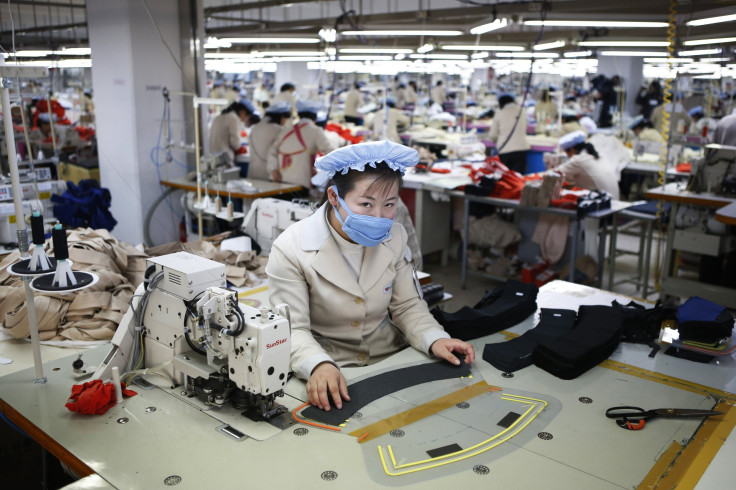North Korea Responds To South’s Kaesong Industrial Park Shut Down, Calls Move A 'Dangerous Declaration Of War'

North Korea responded Thursday to South Korea’s move of shutting down its operations in the Kaesong industrial park by calling it a “dangerous declaration of war,” Korean Central News Agency (KCNA) reported. Seoul had announced Wednesday that it will suspend its activities in the park, jointly run by the two Koreas, in retaliation to Pyongyang's recent rocket launch.
The North's Committee for the Peaceful Reunification of Korea vowed to deport all South Korean nationals and freeze Seoul’s assets and equipment at the industrial park in the North, the Associated Press reported, citing KCNA. Pyongyang also said it was shutting down two crucial cross-border communication hotlines.
The park, which started operations in 2005, has provided 616 billion won ($560 million) to North Korea, the minister reportedly said. Nearly 124 South Korean companies employed about 55,000 North Koreans at the industrial park, located about 34 miles northwest of Seoul.
Despite volatile relations between the two neighbors over the years, the Kaesong facility was shut only once before in 2013 when North Korea pulled out its workers after tensions escalated following its third nuclear test. North Korea's recent rocket launch, which put a satellite in orbit, has been seen by world powers as a disguise for developing an intercontinental ballistic missile that can deliver a nuclear bomb.
"Despite our efforts to support the Kaesong complex, the factory zone is seen as being used for North Korea's development of nuclear weapons and long-range missiles," Unification Minister Hong Yong-pyo said Wednesday, according to Yonhap News Agency. "We've decided to halt the operation of the Kaesong complex to prevent South Korean money from being funneled into the North's nuke and missile developments and to protect our companies."
© Copyright IBTimes 2025. All rights reserved.




















